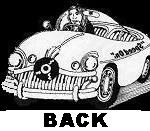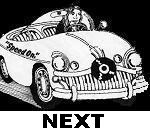Nicky Hopkins, Sideman Extraordinaire, Left Imprint On Dozens Of Rock Classics
By Ray Coleman
Billboard
September 17, 1994 Pg. 12
BY RAY COLEMAN
At the time this article was written, rock biographer Ray Coleman has known Hopkins for 30
years and had been working with him on his authorized biography.
Unfortunately Ray passed away on September 10, 1996 and left Nicky Hopkins' Biography unfinsihed.
Nicky Hopkins often was described as the most celebrated "unknown" in popular
music. It was an identity -- or perhaps a lack of one -- with which he was
quite comfortable, for he was the antithesis of the headline-hitting stars for
whom he played so extensively.
A renowned British rock'n'roll sideman whose keyboard playing graced albums
by the Beatles, the Rolling Stones, Joe Cocker, Jefferson Airplane, Quicksilver
Messenger Service, and many others, Hopkins died in Nashville Sept. 6 of
complications following an operation for a stomach ailment. He was 50 years
old.
Recognized as a keyboardist nonpareil, he was sought after by the top names
in rock and pop. In a rich, 30-year career, Hopkins played on scores of albums,
stamping an extraordinary gift for improvisation and melody onto such classics
as John Lennon's "Imagine" album. His work also appears on albums by Carly
Simon, Ravi Shankar, and Art Garfunkel, with whom he toured.
As a man and as a musician, Hopkins was a quirky mixture of charm and
irascibility, as punctiliously demanding as the precision of his music
suggested. He will be remembered by many friends within the music industry for
his droll, self-deprecating jokes, the demo tapes he sent them, and, most of
all, for his sense of integrity. A host of albums produced in the past three
decades would be poorer without the ubiquitous credit "Nicky Hopkins:
keyboards."
Born in London Feb. 24, 1944, Hopkins was a quintessential product of the
vibrant British blues scene of the '60s. He was first drawn to the music when
he heard Fats Domino's "Ain't That A Shame." Classically trained on piano at
London's Royal Academy of Music, he joined his first band, the primitive
sounding Screaming Lord Sutch & the Savages, at age 16. Hopkins' eclectic
tastes and sight-reading ability, allied with a natural feel for blues music
quickly marked him for success. Word spread around the London clubs that he was
a prodigy in the making.
Hopkins went to the Star Club in Hamburg in 1962 with Cliff Bennett's Rebel
Rousers, there meeting the Beatles, who would soon be among his notable
"employers." Returning to Britain, he joined the legendary blues harmonica
player Cyril Davies, a link to future legends including Elton John, Rod Stewart,
and Eric Clapton. Hopkins' affinity for the blues led him to the Rolling
Stones, who were opening for Davies at the Marquee and other London clubs.
Working as a session musician for the Who on the "My Generation" album,
Hopkins' reputation as a versatile pianist spread quickly on the grapevine of
'60s London. By mid-decade, he was the most in-demand recording session player
in the land, playing with the Kinks, Tom Jones, Dusty Springfield, Marc Bolan,
the Stones, and many others.
In the studio, Hopkins' often spikey personality sometimes caused ripples,
but, as he later said, he never made the fatal mistake of other session
musicians who "tried to join the band." It was crucial, he said, to stand a pace
behind the players and act responsibly as a hired player, even when feeling the
frustration of knowing the solutions to creative problems that beset his
friends.
"Keep playing, and keep silent, sometimes," he said in an interview in 1993.
"That way, they'll invite you back. Don't threaten their position, even when
you know they're wrong."
In 1967, the Rolling Stones invited Hopkins to play with them on recording
sessions, and the first song he cut with the band was "We Love You," a single
which also featured the vocals of Lennon and Paul McCartney. This was followed
shortly by the albums "Their Satanic Majesty's Request" and "Beggar's Banquet."
The latter bears the inscription: "We are deeply indebted to Nicky Hopkins and
many friends."
Hopkins played on 14 albums by the Stones, from "Satanic Majesties" to
"Emotional Rescue."
At the session for "We Love You," Lennon and McCartney invited Hopkins to
play on their single "Revolution," and he later recorded extensively with
Lennon, George Harrison, and Ringo Starr individually after the Beatles split.
A pivotal career choice faced Hopkins in 1968. Jimmy Page, former guitarist
for the Yardbirds, told Hopkins he wanted his help in forming a band called the
New Yardbirds. (The group would later become Led Zeppelin.) Simultaneously,
Hopkins was courted by another ex-Yardbird, high-flying guitarist, Jeff Beck.
Believing that a band with the provisional name of the New Yardbirds was
doomed, Hopkins took Beck's offer. He would later laugh at his decision, which
denied him a role in Led Zeppelin, but reflected last year, "Beck's was a
brilliant band which should have gone all the way." He often voiced his
disappointment that it fell apart, particularly since it boasted the technical
wizardry of Beck's guitar playing and Rod Stewart as lead singer.
Hopkins remained in perpetual demand, however, and soon his florid touches
were heard behind Ella Fitzgerald, Steve Miller, and on Jefferson Airplane's
acclaimed "Volunteers" set. In addition to "Imagine," he appeared on Lennon's
"Walls And Bridges" and "Shaved Fish" albums.
His unique talent was embodied in his love of improvisation, and he brought
to any concert or studio the brilliantly fertile, ever-open mind of an inquiring
and resourceful musician.
Artists with styles as disparate as the classical guitarist John Williams
(with whom Nicky played in the group Sky) and Stewart (who featured Hopkins on
his album "Blondes Have More Fun") were astonished at Hopkins' flexibility. His
touch, tone, and ideas were always fresh.
In recent years, Hopkins had moved first to Los Angeles and, eight months
ago, to Nashville. He had begun writing soundtracks for movies, and recently
worked with Don Henley.
Beset with stomach problems since childhood, he underwent surgery a year ago,
but complications occurred in recent months. He worked to the end, gigging
earlier this year with British drummer Ian Wallace. He is survived by his
Scottish-born wife, Moira.
 -
-
 -
-

 -
-
 -
-

 -
-
 -
-
